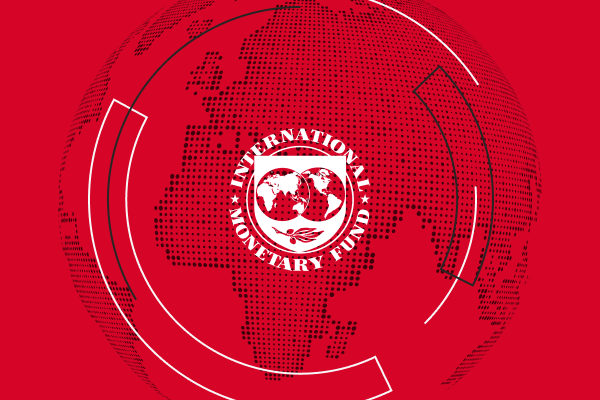Trading Signals 05/02 – 09/02
IMF Forecasts on the Global Economic Outlook: A Data-Driven Analysis and Implications

The International Monetary Fund (IMF) recently released its updated World Economic Outlook (WEO) for the coming years, providing valuable insights into the anticipated performance of the global economy.
Main Projections, Key Drivers, and Inflation Dynamics
The IMF projects that the global economy will grow by 4.9% in 2023, moderating to 3.6% by 2025. Advanced economies are expected to witness a deceleration, with a projected expansion of 3.5% in 2023 and 2.2% by 2025, mainly due to the gradual withdrawal of fiscal support, supply chain issues, and labor market constraints. The tightening of monetary policy in response to rising inflationary pressures is also expected to weigh on growth in these economies.
Emerging markets and developing economies, however, are forecasted to outpace their advanced counterparts in terms of growth, with a projected expansion of 5.8% in 2023 and 4.7% by 2025. Factors driving this gain include increasing demand for commodities, higher investment rates, and structural reforms. Nonetheless, these economies also face challenges, such as external headwinds, elevated public debt levels, and the need to address social and environmental concerns.
Global inflation is projected to average 3.9% in 2023, remaining elevated in the short term due to ongoing supply-side constraints and rising energy prices. However, the report suggests that inflationary pressures will gradually subside, with inflation expected to decline to 3.1% by 2025 as supply chain bottlenecks are resolved and demand normalizes.
Monetary and Fiscal Policies, Public Debt Sustainability
Central banks worldwide are expected to tighten monetary policy to address rising inflationary pressures. The Federal Reserve, for instance, is projected to raise interest rates in the second half of 2023. The IMF advises policymakers to carefully balance the need to curb inflation with the potential adverse effects on economic growth, particularly in advanced economies.
The IMF highlights the need for fiscal consolidation in the medium term to address elevated public debt levels, which are expected to reach 98.4% of global GDP in 2023. The report emphasizes that governments should prioritize growth-enhancing spending, such as investments in infrastructure, education, and research, while gradually reducing unproductive expenditures.
High public debt levels pose a risk to the global economic outlook, particularly for emerging markets and developing economies, where debt levels are projected to reach 62.6% of GDP in 2023. The IMF underscores the importance of pursuing fiscal policies that ensure debt sustainability while also supporting economic growth and addressing social and environmental challenges.
Geopolitical Risks, External Shocks, and Sectoral Implications
The global economy remains vulnerable to geopolitical tensions, which pose a key risk to the economic outlook, with potential implications for trade, investment, and financial markets. The IMF calls for international cooperation and dialogue to mitigate these risks and support global economic stability.
The world economy is also susceptible to external shocks, such as natural disasters, pandemics, or financial crises. The IMF highlights the need for countries to strengthen their resilience to such shocks through robust macroeconomic policies, financial sector regulation, and international cooperation.
Sectoral implications of the IMF forecast include elevated commodity prices, particularly oil, which is projected to average $82 per barrel in 2023 before gradually declining. This has implications for both commodity-exporting and importing countries, as well as for global inflation dynamics.
The IMF emphasizes the importance of technological advancements and innovation in driving long-term economic growth. Policymakers are encouraged to invest in research and development, promote digitalization, and support the transition to a more sustainable and inclusive economy.
The report identifies labor market challenges as a key factor contributing to the slowdown in advanced economies. The unemployment rate in advanced economies is projected to decline to 4.1% by 2023 but remains above pre-pandemic levels. The IMF recommends that governments implement policies to address skill mismatches, support workforce reskilling, and promote greater labor market flexibility to facilitate a more robust recovery.
Environmental Sustainability, Social Inclusion, and Concluding Remarks
The organization underscores the need for countries to prioritize environmental sustainability in their economic policies. This includes investing in green infrastructure, promoting renewable energy, and implementing measures to mitigate and adapt to climate change.
The report calls for policies that promote social inclusion and reduce income inequality, emphasizing that a more equitable distribution of economic gains will contribute to a stronger and more resilient global economy. This can be achieved through targeted social spending, progressive tax systems, and investments in education and healthcare.
Wrap Up
The IMF’s global economic outlook for the coming years, supported by data and figures, highlights the importance of carefully calibrated policies and international cooperation in addressing the challenges facing the world economy. Policymakers and financial analysts alike must navigate a complex landscape of risks and challenges, such as geopolitical tensions, external shocks, and the potential for policy missteps. Key policy priorities include addressing supply chain disruptions, managing inflationary pressures, promoting fiscal consolidation and public debt sustainability, investing in growth-enhancing sectors, and fostering social and environmental sustainability. While the path ahead remains uncertain, policymakers and financial analysts must remain vigilant and adapt to the evolving global economic landscape to ensure sustained growth and stability.
Oil: A Review of Early 2024
China’s Economy: Early 2024
Simple Strategy for Beginner Traders

